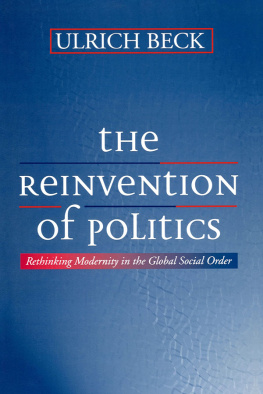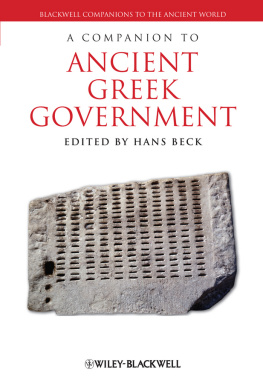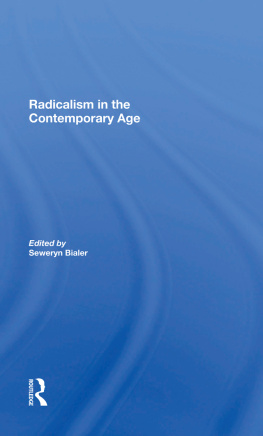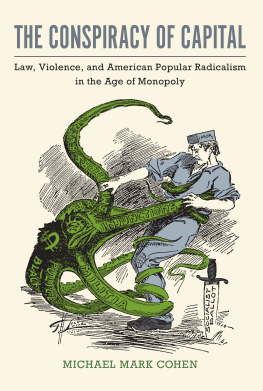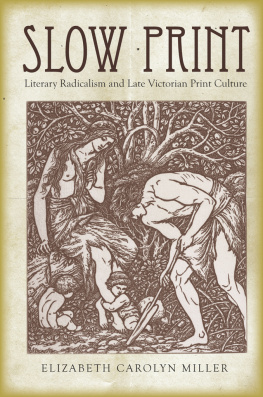Contents
Figures
Tables
Guide
Print Page Numbers

Social Movements series
Colin J. Beck, Radicals, Revolutionaries, and Terrorists
Stephanie Luce, Labor Movements: Global Perspectives
David Walls, Community Organizing: Fanning the Flame of Democracy
Radicals, Revolutionaries, and Terrorists
Colin J. Beck
polity
Copyright Colin J. Beck 2015
The right of Colin J. Beck to be identified as Author of this Work has been asserted in accordance with the UK Copyright, Designs and Patents Act 1988.
First published in 2015 by Polity Press
Polity Press
65 Bridge Street
Cambridge CB2 1UR, UK
Polity Press
350 Main Street
Malden, MA 02148, USA
All rights reserved. Except for the quotation of short passages for the purpose of criticism and review, no part of this publication may be reproduced, stored in a retrieval system, or transmitted, in any form or by any means, electronic, mechanical, photocopying, recording or otherwise, without the prior permission of the publisher.
ISBN-13: 978-0-7456-9817-5
A catalogue record for this book is available from the British Library.
Library of Congress Cataloging-in-Publication Data
Beck, Colin J.
Radicals, revolutionaries, and terrorists / Colin J. Beck.
pages cm
Includes bibliographical references and index.
ISBN 978-0-7456-6211-4 (hardback : alk. paper) -- ISBN 978-0-7456-6212-1 (pbk. : alk. paper) 1. Radicalism. 2. Revolutions. 3. Terrorism. I. Title. HN49.R33B43 2015
303.48'4--dc23
2014043389
The publisher has used its best endeavours to ensure that the URLs for external websites referred to in this book are correct and active at the time of going to press. However, the publisher has no responsibility for the websites and can make no guarantee that a site will remain live or that the content is or will remain appropriate.
Every effort has been made to trace all copyright holders, but if any have been inadvertently overlooked the publisher will be pleased to include any necessary credits in any subsequent reprint or edition.
For further information on Polity, visit our website: politybooks.com
For Soc 121, past, present, and future
Acknowledgments
When Emma Longstaff of Polity first approached me about writing a book on radical social movements, I thought that a work focused on movement theory alone would be both boring to read and boring to write. So I suggested that I might model the manuscript after a course I had developed at Pomona College, Sociology 121: Radicals, Revolutionaries, and Terrorists. When Polity agreed to the scheme, I was delighted here, the curriculum I dreamed up while getting a cup of coffee a few years previously would now also be a book. I am appreciative of all the good people at Polity, including Emma Longstaff, Elen Griffiths, and Jonathan Skerrett, for their help in bringing this to fruition and their patience with my delays during a particularly difficult time.
This book is dedicated to the students of my course on which it is modeled. They were the first audience for these ideas and shaped their presentation in many ways, both large and small. Robert Chew may recognize his influence on my definition of radicalism. In addition, the students of my social movements class in the spring of 2014 helped reinvigorate my interest in collective action and gave me the energy to finish the manuscript. And I am thankful for several talented research assistants over the years: Emily Miner, Eli Kaplan, Kuniko Madden, and Megan Pritchett.
Outside of the classroom, I owe special debts to Al Bergesen who was the first to suggest that I do something scholarly with my interest in political violence, Doug McAdam who has been my guide to understanding contention, and John Meyer who has taught me more about being both a social scientist and a human than anyone. David Frank and Richard Lachmann both gave encouragement to pursue this project at crucial times. At Pomona, various friends and colleagues have been sources of support and necessary distraction. In particular, I thank Hillary Gravendyk, Benjamin Burrill, Kevin Dettmar, and Bob Herman.
I would be lost without the love and support of my partner, Robin Cooper. While writing this book was not always seamless, she has made everything else so. Soon we will be a triumvirate.
May 30, 2014
Claremont, California
Part I
The Known Knowns
What is Radicalism?
In the course of a couple of decades, the world was riven with conflict that occurred not between states but between states and organized movements, where individual citizens became both participants in and targets of contention. A loosely organized international movement placed bombs in crowded, public places, staged assassinations and made the overthrow of the global order their goal. At the same time, organized oppositions overthrew autocratic rulers and instituted new, democratic governments in their societies, and radical mass movements struggled against economic inequality and corporate systems of production.
The reader contemporary to the publication of this book might suppose that I am describing the wave of international Islamic terrorism of the last two decades, the Arab Spring revolutions of 2011, and global justice groups like the Black Bloc or animal rights activists. But in fact, I am describing the turn of the twentieth century, when anarchists used terrorism to create propaganda of the deed, republican movements in Turkey, Persia, Russia, Portugal, and elsewhere sought constitutional monarchies, and labor activists formed new international unions that were sometimes suppressed violently by governments. As this book demonstrates, radicalism, revolution, and terrorism are a recurrent feature of world history.
The basic premise for this book is the interchangeability of mass movements. This idea, drawn from Eric Hoffers (1951) philosophical reflections on Nazism and Stalinism in The True Believer, is that all movements share many features. Rather than consider the goals of social movement radicalism, the occurrence of revolution, and the use of terrorism and political violence separately, I consider them here conjointly. Each is a form of collective action, which can be defined as coordinated action by two or more people to change the conditions for a group. Imagine a Venn diagram with three circles. While each circle radicalism, revolution, and terrorism has some aspects that are uniquely its own, there is a space where the three overlap. Thus, to understand radicalism or revolutions or political violence, we must understand all three.
This is not an entirely new view. Besides Hoffer, scholars of social movements and revolution have long spoken to each other and found many commonalities. However, the study of social movements, which we can define as collective challenges, based on common purposes and social solidarities, in sustained interaction with elites, opponents, and authorities (Tarrow 1998: 4), tends to focus on a particular western and democratic form of politics in the model of well-known 1960s cases like the civil rights movement, womens movement, and anti-Vietnam War protest. Revolution scholars, in contrast, have tended to focus on the environments in which governments fail to quash their challengers, particularly in famous cases like France in 1789, Russia in 1917, Cuba in 1959, and Nicaragua in 1979. And the study of terrorism tends to operate in isolation from theories of movements and revolution, focusing on contemporary examples like nationalist-separatist groups of the twentieth century or recent terrorism by Islamist extremists. The reason for these tendencies has much to do with how each field has developed over time. Before I more precisely define radicalism, revolution, and terrorism, it is helpful to briefly introduce the history of scholarly work on the subjects.



